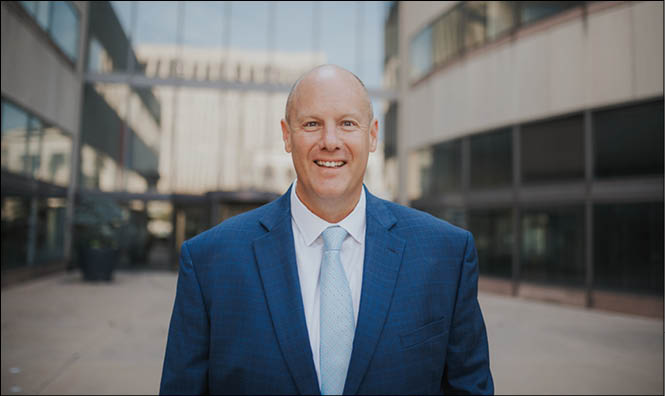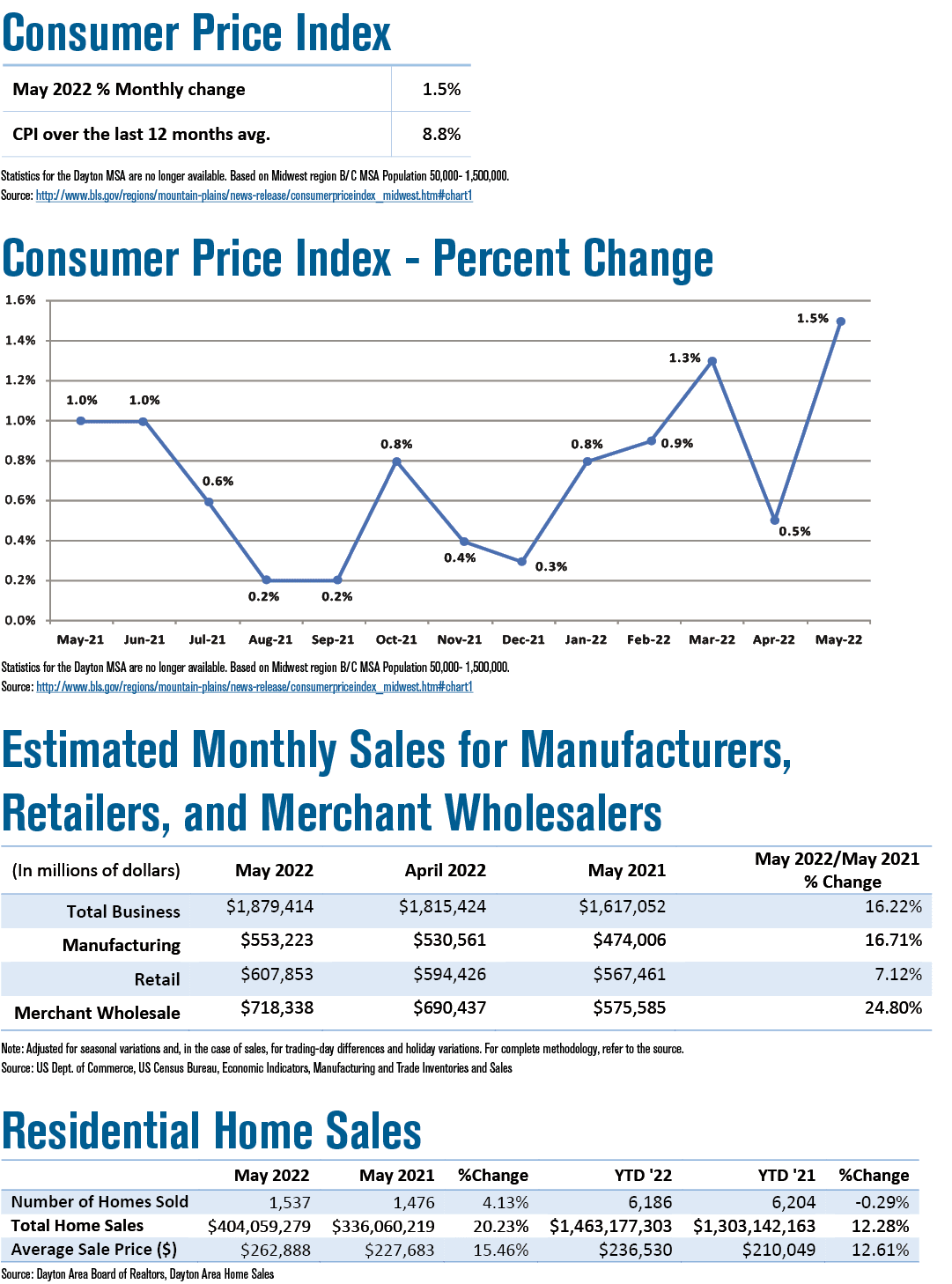Sentinel’s sensors, analytics and alerts combine to keep people safe
From workers doing risky jobs to the elderly living alone, this year’s
Soin Award winner provides safety, peace of mind
The idea began in a hospital intensive care unit.
An executive for defense contractor Lockheed Martin was visiting a loved one and marveled at the technology that allowed nurses to monitor all their patients’ conditions from their workstation.
In the world of industry, the ‘buddy system’ is the standard for monitoring when workers are in risky environments or confined spaces. If, for instance, Lockheed Martin has 100 people working in confined spaces – not uncommon in aircraft maintenance – it will have another 100 employees watching them.
Looking at the ICU monitors, the executive thought, “Why can’t we do this?”
That question, posed to the Air Force, planted the seed that grew into Sentinel Occupational Safety Inc., a Fairborn startup and the winner of the 2022 Soin Award for Innovation.
Sentinel’s SafeGuard technology combines wearable sensors and intuitive software to monitor a user’s well-being – whether that user is a worker in a risky situation, an elderly person living along or an elite athlete on a remote training course. SafeGuard gathers biometric and environmental data, assesses the subject’s condition, reports it in real time and sounds an alarm if needed.
“I'm clearly biased but I think with our technology the potentials are endless,” said Zachary Kiehl, Sentinel’s 30-year-old co-founder and CEO. “We strongly believe we could become a billion-dollar company.”
From worker safety to ‘humans at risk’
Sentinel was spun out of Aptima Inc., a Massachusetts-based research and development firm that focuses on human performance in technology-intensive settings. Aptima was tapped to develop the type of monitoring system suggested by Lockheed Martin.
Kiehl, who was a research engineer and team leader at Aptima, said the worker safety aspect of their research attracted a lot of investment -- a sign that this product could have a strong commercial market
“There are 53 million lone workers across Europe and North America -- 53 million people who primarily work alone on a daily basis,” Kiehl said. While many of those jobs aren’t acutely dangerous, simply working alone carries risks that can be reduced though SafeGuard’s proactive and personalized monitoring.
“We really thought that there was a lot of commercial potential, and it was focused on worker safety … We've since expanded our vision to include humans at risk,” he said.
Three primary markets
Sentinel was formed in March 2020. Kiehl went full time in January 2021. The company now has 6 full-time employees and about 15 others involved as independent contractors. Aptima is an investor and heavily represented on Sentinel’s board.
“We’re still a seed-stage company,” Kiehl said. “We’ve really only been in full operations for about 14 to 16 months and to see where we're at, I think, collectively, our team is pleasantly surprised.”
Sentinel markets SafeGuard in three main sectors, or what Kiehl calls “verticals:” worker safety, health and wellness and peak physical performance. “We have a growing user base and … active paying users across all these verticals,” he said.
This summer, Kiehl was in Norfolk, Va., delivering SafeGuard to the U.S. Coast Guard’s Maritime Security Response Team and teaching them how to use it during a Shoot House exercise, with team members in full hazmat-type suits working in the Virginia heat.
The feedback was positive.
Team members told Kiehl the system made them feel safer and gave them insights about their bodies as they train to become elite. An admiral expressed interest in using SafeGuard throughout the Coast Guard. “It went really well,” Kiehl said.
Better than the buddy system
SafeGuard begins with sensors that gather physical and environmental data usually via a “wearable” – which could range from a smart watch to a shirt with built-in sensors. Software analyzes the data and issues an alert if needed.
Sentinel is sensitive to privacy concerns and allows users to decide when the sensors are in use and who receives the data. Alerts could simply go to the user or to a designated “guardian,” such as a supervisor or a relative. The data also can be sent to someone doing “active remote monitoring,” a situation similar to the ICU.
Aptima developed a system for the Air Force and Navy that allows for one person to monitor about 20 workers via real-time feeds to a computer notebook. Such a system is arguably more effective than the buddy system, as well as being more efficient, Kiehl said. “There’s a lot of dangers lying fallow that the human eyes, nose, ears can't sense.”
Widely compatible
Kiehl said Safeguard’s “secret sauce” is its ability to properly analyze the data -- an elevated heart rate, for instance, is not a problem if someone is exercising -- and convey “actionable insights.”
Compatibility is another key feature.
SafeGuard’s open architecture already works with more than 2,000 devices and can incorporate other company’s sensors.
The company has a variety of pricing plans, including tiered a model based on the sophistication of the system needed, and an enterprise model, “which is basically come talk to us and we'll figure it out,” Kiehl said.
It will soon be available through the App Store and Play Store, with entry-level pricing for individual consumers.
Apple has given Sentinel special privileges, allowing real time data feeds from an Apple Watch, Kiehl said.
“They don't give privileges to every organization that wants to be able to use their app,” he said. “They did it because they were so passionate about our use-case, the potential to save lives … We are also opening up some additional markets for them.”
Life-saving technology
Kiehl is honored by the Soin Award and thankful to the Soin family, the Dayton Area Chamber of Commerce, and other sponsors. “This is a great opportunity to really get our name out there, (we’re) just tremendously grateful,” he said.
He said, too, he’d like to hear from anyone interested trying to protect someone at risk. “We're at that early stage, so that any use-case, any application is kind of on the table … We’re very passionate in our mission which is to protect and prolong the lives of those at risk, but it takes participation and advocacy from the general population.”
Sentinel has trademarked the phrase ‘Safety as a Service’ and its system has already helped to save a life, Kiehl said.
He said SafeGuard sensors alerted a worker who had entered a confined area that was oxygen deficient. It also alerted a stand-by rescue person who was able to retrieve the worker who was on the verge of passing out.
“We actually have saved a life with our platform,” he said. “At the end of the day, that’s what we like to hang our hats on.”

































































































































































































